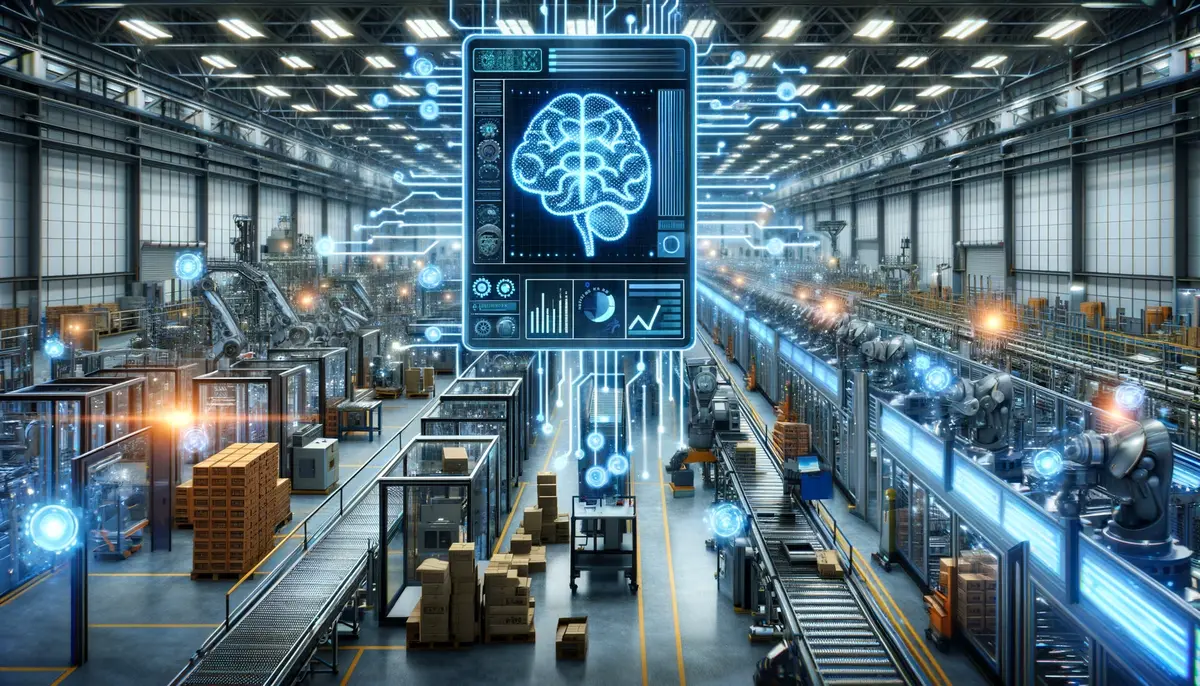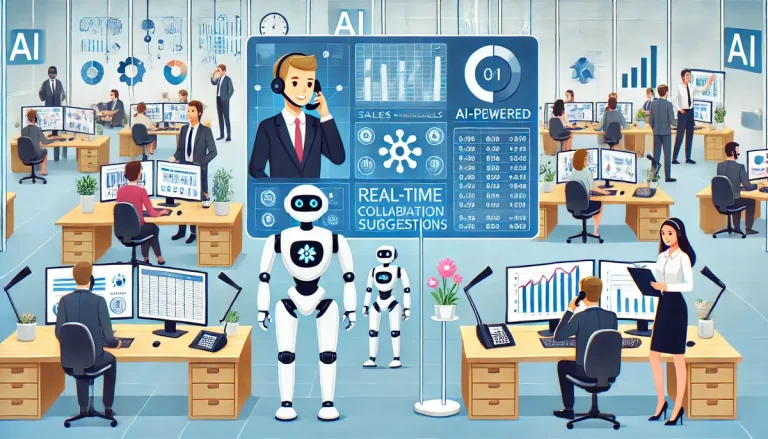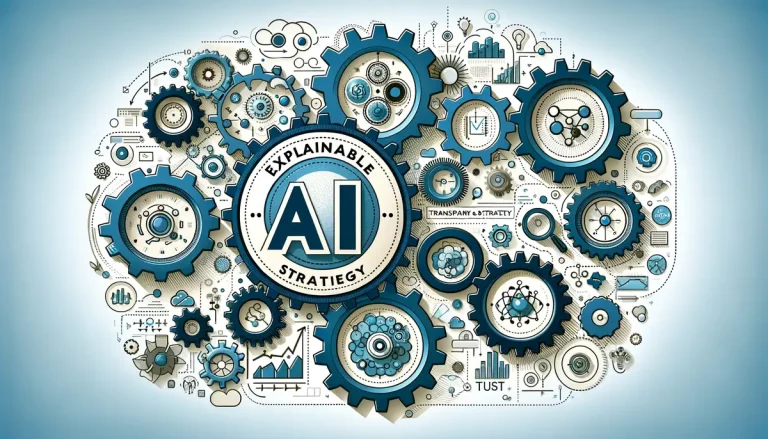Did you know that according to a recent study by Deloitte, 90% of manufacturing and supply chain executives consider digital transformation to be a top priority for their organizations? As companies strive for efficiency, agility, and cost-effectiveness, the role of technology becomes increasingly pivotal. AI schedulers, the silent orchestrators of production and logistics, reshaping the landscape of manufacturing and supply chain management with their precision and foresight.
Manufacturing and Supply Chain Management
Manufacturing encompasses the process of transforming raw materials into finished goods, while supply chain management involves the coordination of resources, information, and activities involved in delivering products to consumers. In this dynamic environment, the ability to streamline operations, minimize costs, and meet customer demands is paramount for success.
AI schedulers revolutionize traditional scheduling methods by leveraging artificial intelligence algorithms to optimize production schedules, allocate resources efficiently, and manage inventory effectively. By analyzing vast amounts of data in real-time, AI schedulers can anticipate demand fluctuations, identify bottlenecks, and make proactive adjustments to ensure smooth operations across the manufacturing and supply chain ecosystem.
Integrating AI Schedulers in Manufacturing and Supply Chain Management
Integrating AI schedulers into manufacturing and supply chain management processes offers unparalleled opportunities for optimization, efficiency, and agility. These intelligent systems leverage advanced algorithms to automate scheduling tasks, optimize resource allocation, and synchronize production and logistics activities. This section explores the key steps and considerations for successfully integrating AI schedulers in manufacturing and supply chain management.
Assessment of Current Processes
- Conduct a thorough analysis of current manufacturing and supply chain processes.
- Identify key pain points, inefficiencies, and bottlenecks in production scheduling and resource allocation.
- Determine specific objectives and goals for AI scheduler implementation, aligning them with the organization’s strategic priorities and business objectives.
Selection of AI Scheduler Solution
- Research and evaluate different AI scheduler solutions available in the market.
- Consider factors such as functionality, scalability, ease of integration, and cost-effectiveness.
- Select an AI scheduler solution that aligns with the organization’s goals, requirements, and budget constraints.
Data Integration and Preparation
- Establish data integration mechanisms to collect and aggregate data from diverse sources.
- Cleanse and standardize data to ensure accuracy, consistency, and completeness.
- Integrate AI scheduler platforms with existing manufacturing and supply chain systems, such as enterprise resource planning (ERP) systems, production management software, and logistics platforms.
Training and Implementation
- Develop training programs and materials to educate personnel on AI scheduler usage and best practices.
- Conduct hands-on workshops and simulations to facilitate practical learning and skill development.
- Collaborate with AI scheduler vendors and experts to provide ongoing support and assistance during the implementation process.
Continuous Monitoring and Optimization
- Establish performance metrics and key performance indicators (KPIs) to measure AI scheduler effectiveness.
- Monitor AI scheduler performance in real-time, identifying areas for improvement and optimization.
- Gather feedback from users and stakeholders to identify pain points, challenges, and opportunities for enhancement.
By following these steps and considerations, organizations can successfully integrate AI schedulers into their manufacturing and supply chain management processes, unlocking new levels of efficiency, agility, and competitiveness in today’s fast-paced business environment.
Implementation Considerations
Implementing AI schedulers in manufacturing and supply chain management requires careful consideration of various factors to ensure successful adoption and integration. Addressing key implementation considerations is essential for overcoming challenges and maximizing the value of AI schedulers within the organization.
- Data Quality and Availability: One of the critical factors influencing the success of AI scheduler implementation is the quality and availability of data. Organizations must ensure that the data used by AI schedulers is accurate, reliable, and up-to-date. Data cleansing and validation processes should be implemented to remove errors and inconsistencies that could negatively impact scheduling outcomes.
- System Integration: Integrating AI schedulers with existing manufacturing and supply chain systems is essential for seamless operation and collaboration. Organizations must ensure that AI schedulers can integrate with enterprise resource planning (ERP) systems, production management software, inventory management systems, and other relevant platforms.
- Organizational Readiness: Organizational readiness plays a crucial role in the successful implementation of AI schedulers. Organizations must assess their readiness to adopt AI technology and ensure that employees are adequately trained and prepared for the transition. Clear communication and change management strategies are essential for fostering acceptance and buy-in from stakeholders.
- Collaborative Efforts: Collaboration between IT professionals, operations managers, and frontline staff is essential for successful AI scheduler implementation. Cross-functional teams should work together to define requirements, address implementation challenges, and ensure that AI schedulers align with organizational goals and objectives.
By addressing these implementation considerations, organizations can overcome challenges and maximize the value of AI schedulers in manufacturing and supply chain management. Collaborative efforts between IT professionals, operations managers, and frontline staff are essential for ensuring a smooth transition and realizing the full potential of AI scheduler technology.
.
Case Studies and Examples
Real-world examples serve as testament to the transformative power of AI schedulers in manufacturing and supply chain management. Companies across various industries have embraced AI technology to optimize their operations, streamline processes, and gain a competitive edge in the market. Let’s explore some notable case studies that illustrate the impact of AI schedulers in action:
- Example 1: A multinational automotive manufacturer implemented an AI scheduler to optimize production scheduling across its global manufacturing facilities. By analyzing production data, demand forecasts, and supply chain constraints, the AI scheduler dynamically adjusted production schedules to minimize downtime and maximize resource utilization. As a result, the company achieved a 15% increase in production efficiency and a 20% reduction in lead times, leading to significant cost savings and improved customer satisfaction.
- Example 2: A leading e-commerce retailer leveraged AI schedulers to enhance its supply chain management processes. By integrating AI algorithms into its inventory management system, the retailer was able to accurately forecast demand, optimize inventory levels, and reduce stockouts. The AI scheduler automatically adjusted reorder points and replenishment schedules based on real-time sales data and market trends, resulting in a 25% reduction in inventory holding costs and a 30% increase in on-time deliveries.
- Example 3: A pharmaceutical manufacturer deployed an AI scheduler to optimize its production planning and scheduling activities. By analyzing production capacity, raw material availability, and regulatory requirements, the AI scheduler generated optimized production schedules that minimized production costs and maximized throughput. The company experienced a 20% increase in production output and a 15% reduction in production lead times, allowing it to meet growing demand while maintaining quality standards and compliance.
Read More: The 10 Best Ways To Reduce Your Call Center Costs
Best Practices for AI Scheduler Adoption
To successfully adopt and leverage AI schedulers in manufacturing and supply chain management, organizations should adhere to best practices that promote effective implementation and utilization. Key strategies include:
- Define Clear Objectives: Clearly define the objectives and goals of AI scheduler implementation, aligning them with the organization’s overall strategic priorities and business objectives.
- Invest in Training and Education: Provide comprehensive training and education programs for employees to familiarize them with AI scheduling technology and its applications. Encourage ongoing learning and skill development to ensure that staff are equipped to effectively utilize AI schedulers in their roles.
- Collaborate Across Departments: Foster collaboration and communication between different departments and stakeholders involved in AI scheduler implementation, including IT, operations, supply chain, and executive leadership. This cross-functional approach ensures alignment of goals, resources, and priorities throughout the implementation process.
- Monitor Performance and Iterate: Continuously monitor the performance and effectiveness of AI schedulers, collecting feedback from users and stakeholders to identify areas for improvement and optimization. Iterate on the implementation strategy based on insights gained from real-world usage and outcomes, continuously refining processes and workflows to maximize value and ROI.
By following these best practices, organizations can effectively harness the power of AI schedulers to drive efficiency, agility, and competitiveness in manufacturing and supply chain management. As AI technology continues to evolve and mature, the potential for AI schedulers to revolutionize the way organizations plan, execute, and optimize their operations is virtually limitless. Embracing this transformative technology today will position organizations for success tomorrow in an ever-changing and increasingly complex global marketplace.
Conclusion
In conclusion, AI schedulers represent a transformative force that is reshaping the future of manufacturing and supply chain management. By embracing this technology and adopting best practices for implementation and utilization, organizations can unlock new opportunities for innovation, efficiency, and competitiveness in today’s rapidly evolving business landscape. As we navigate the complexities of the modern economy, AI schedulers stand ready to empower organizations to thrive in an era of unprecedented change and opportunity.







